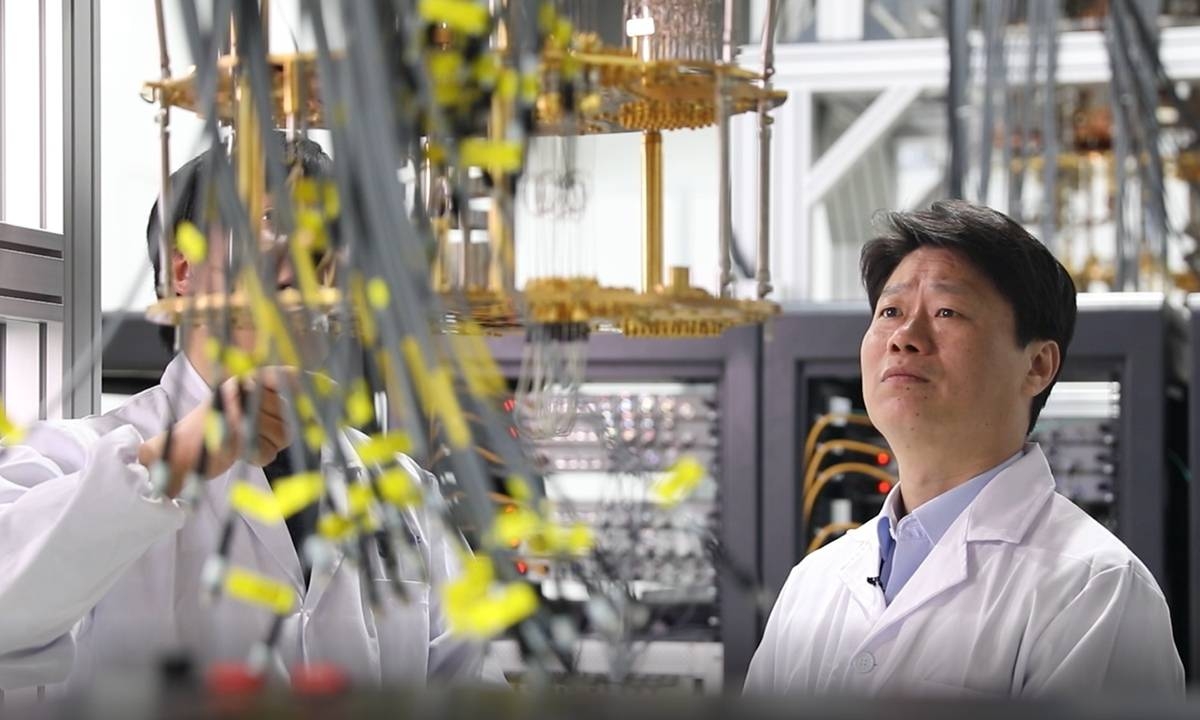
CHINA has established a basic independent industry chain for superconducting quantum computers, and it is one of the very few countries that can independently produce quantum computers, which are believed to be critical for future development, a leading Chinese scientist told the Global Times.
However, as the global race for quantum computing continues to heat up and the United States continues to crack down on China's technological rise, "greater efforts are needed to make breakthroughs in key areas that are facing technological blockades by the West," said Guo Guoping, a deputy to the National People's Congress, China's top legislature, and deputy director of the Key Laboratory of Quantum Information of the Chinese Academy of Sciences.
Chinese scientists unveiled a third-generation superconducting quantum computer, known as Origin Wukong, developed by Origin Quantum in January. It was based on China's first quantum chip production line, first quantum computer operating system, and first quantum computing measurement and control system. It also marked China's first realization of automated batch testing of quantum chips.
The delivery of that computer made China the third country in the world with the ability to deliver a complete quantum computer, cementing the country's leading position in quantum computing research after achieving quantum superiority, Guo said.
Guo is also the chief scientist of Origin Quantum Computing Technology Co., a leading quantum tech company based in East China's Anhui province. The company said that its Origin Wukong quantum computer became operational and was opened to global users on January 6.
As a Chinese scientist in developing quantum technologies, Guo and his team have been engaged in research for 21 years. He told the Global Times that Origin Wukong had completed 160,000 quantum computing tasks for global users as of February 26.
The number of times it was accessed remotely from more than 104 countries around the world exceeded 2 million.
Among them, the number of overseas users from the US, Canada and Russia ranked top three, respectively.
In the global arena, the US and China are considered the leaders in the field, and many experts believe that the US still holds an edge, Reuters reported.
Some Western media reports said that China has taken a clear lead in the area of quantum communication, but in terms of developing photonic qubits and error-corrected quantum computers, the US still holds an edge.
Competition in the global quantum computing market is fierce. Meanwhile, there is a gap between China and the West in the industrial application of quantum computing. US-based IBM has made significant strides with dozens of superconducting quantum computers deployed around the world.
China still needs long-term accumulation in the industrial application of quantum computing, and Guo emphasized the need for state-level support policies and more investment to ensure that research is turned into applications.
"Developing and expanding China's own manufacturing chains for quantum computing devices is my key focus for this year's two sessions," Guo said.
According to his proposal shared with the Global Times, Guo urged to promote the deep integration of quantum computing and related industries as well as accelerate the iterative development of the industry in China.
He proposed accelerating the improvement of China's quantum computing power in order to develop new productive forces.
"It is crucial to apply domestically developed superconducting quantum computers in various industrial sectors to support high-quality development in China by improving production efficiency and boosting innovation," he said.
Read The Rest at :



